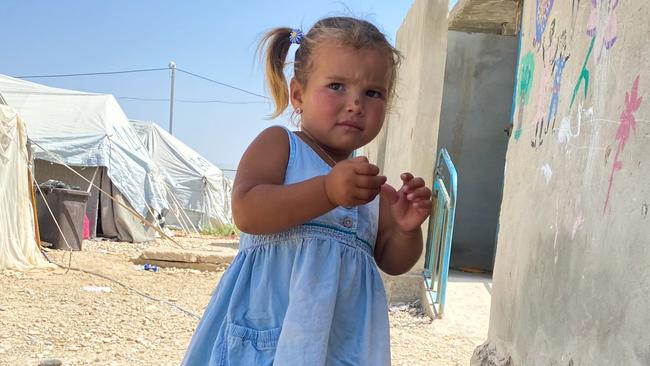
A push is under way to repatriate dozens of Australian women and children held in camps for Islamic State families in northeast Syria, amid fears their indefinite detention is leading to a humanitarian and national security disaster.
The Kurdish Autonomous Administration of North and East Syria is demanding the Albanese government take responsibility for about 60 women and children in Syria, insisting they be sent to Australia.
“The problem is the political decision. If the Australian government takes this decision, everything will be solved,’’ Foreign Minister Abdulkarim Omar said.

The Weekend Australian met families in Syria, including Mariam, 3, and Abdul Rahman, 4, two of five Australian children born in the camps, and who have lived in tents inside wire compounds for the past three years. Australia has struggled to resolve one of the most troubling legacies of Islamic State’s reign of terror.
Mariam’s mother is Shayma Assaad, a former Sydney schoolgirl who was taken to Syria by her parents when she was just 15, married to an alleged Islamic State supporter, Sydney tradie Mohammad Noor Masri, and had her first baby at 16. She now has four children and Mariam, her youngest, was born in the camp in 2019.
Abdul Rahman is the son of Sydney woman Nesrine Zahab and notorious Islamic State fighter Ahmed Merhi, who is in jail in Baghdad. He was born in the camps after his mother escaped from Islamic State when she was pregnant in December 2017, but she says she was prisoner-swapped back into Islamic State hands a few months later when Abdul Rahman was just 29 days old.
She returned to the camps with the other Australians and their families following the fall of Islamic State at Baghouz in March 2019.
With advanced democracies such as Germany, The Netherlands, the US and Finland now repatriating their citizens, pressure is building on the Albanese government to resolve the politically difficult problem it inherited from the Coalition government. France repatriated 16 women and 35 children last month, while Belgium took six women and 16 children from al-Roj camp on the day The Weekend Australian visited the camp.
There are around 42 Australian children and 16 women in al-Roj camp near the Iraqi border, and another handful of women and children in al-Hol camp, near Hasakah. All the women have been detained without charge for more than three years.
The Syria Question

‘Give them a childhood’: mum
Pressure is mounting on the Albanese government to deal with the problem it inherited from the Coalition and repatriate Australian citizens from Syria.
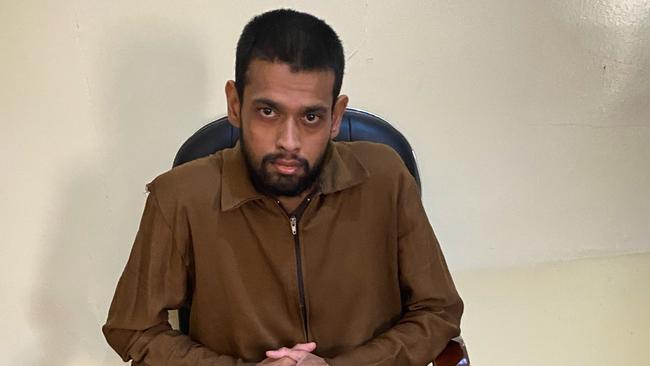
‘I didn’t do anything wrong. I want to come back’
An Australian member of Islamic State locked up in a Syrian prison is begging for forgiveness from his parents and wants to come home, saying he poses no threat.

ISIS families stranded by domestic laws
Government is not legally required to bring ISIS families home, but should do so to meet international obligations, law expert says
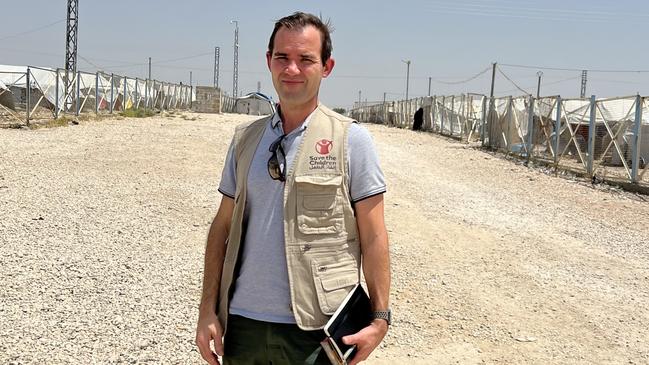
Aid chief proves Syria trip can be done
For years, the previous government said it was too dangerous to extract women and children. Save the Children’s Australian chief Mat Tinkler set out to dismiss that claim.
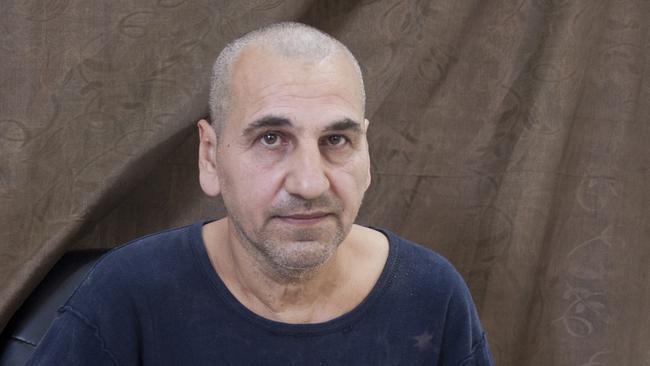
Roll call of the terror-linked prisoners
Australian men are among ISIS-linked prisoners in Syria.

Mystery over death of jailed Aussie teen
Officials and family seek answers over how Sydney teen Yusuf Zahab lost his life in the Syrian prison after an Islamic State attempted jailbreak.

Australian law does not require we bring Syria families home
Rather than safeguarding their rights, our legal system arms our government with extraordinary powers to prevent citizens from returning.
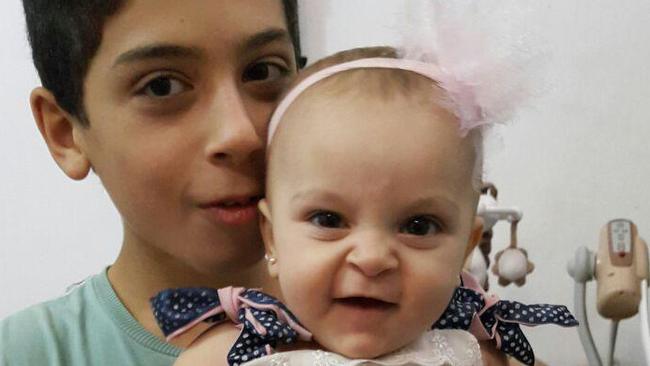
Aussie teen in Syrian prison feared killed
A 17-year-old Australian boy detained for three years without charge in a men’s prison in Syria is believed to have been killed after Islamic State attacked the jail trying to free their fighters.

Jihadi brides’ return ‘risky but ethical’
Repatriating Islamic State families undeniably brings security and legal challenges, but should be done for ethical and national security reasons, a leading counter-terrorism expert says.

Two of the saddest little girls you’ll meet
For the last seven years, Assya and Maysa Assaad have lived either under the rule of IS, or locked in a camp in the desert. All they want to do is go to school.

‘I go to sleep fearing they will be taken from me’
Mariam Raad wants stability and an education for her children, and a job for herself. But as a widow with four children living in a prison camp, her future is precarious.

Repatriated kids live quietly in community
The families of two dead IS fighters repatriated from Syria by the Australian government have been living in the community for several years.
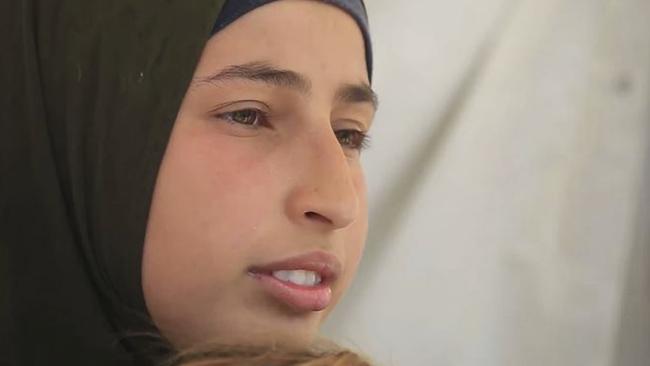
Childhood lost: ‘Sometimes I feel like time has stopped’
Shayma Assaad had barely finished Year Nine in Sydney when she was taken to Syria, married off and impregnated. Hers is one of the most disturbing stories of all the Australian women trapped in al-Roj camp.
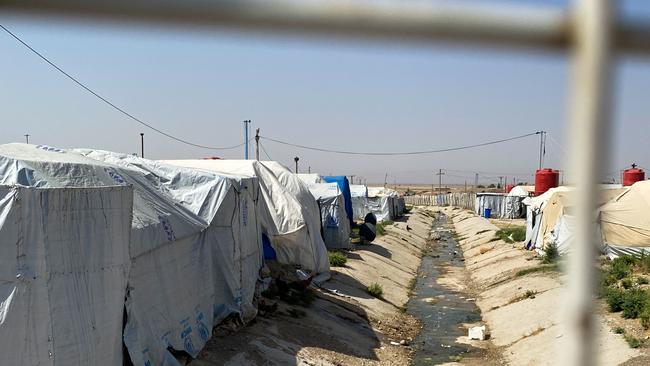
No exit and no hope in ‘torture’ camps
‘This is not a holiday camp, it’s not a refugee camp, it’s not a place where the basic needs of human beings are met in any way.’
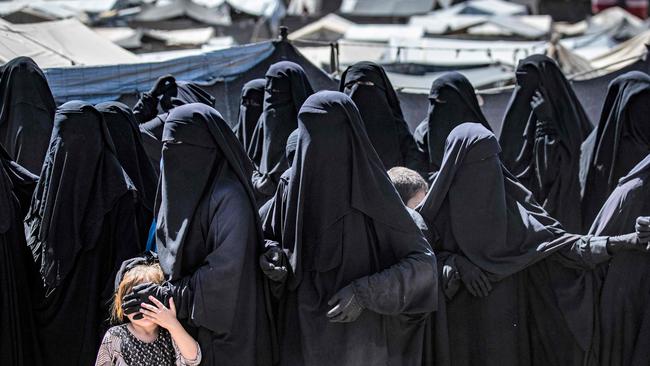
Time to decide what becomes of those left behind
There’s little sympathy in Australia for fellow citizens trapped in Syrian camps. Instead, there’s a dangerous ignorance of the truth.
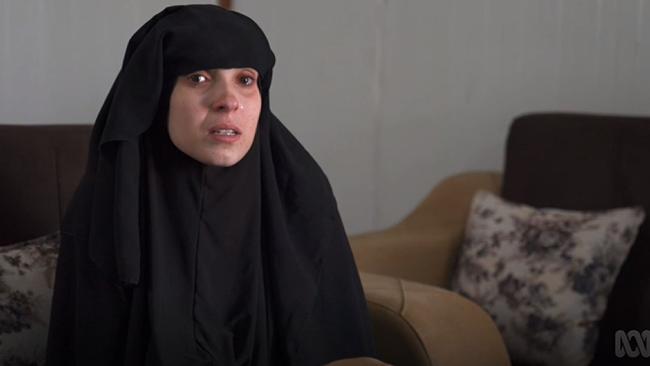
Jail swap sent Aussie mum, baby back to Islamic State
Sydney woman Nesrine Zahab has revealed how she fled ISIS while pregnant, only to be returned to the extremist group with her newborn baby in a prisoner swap.
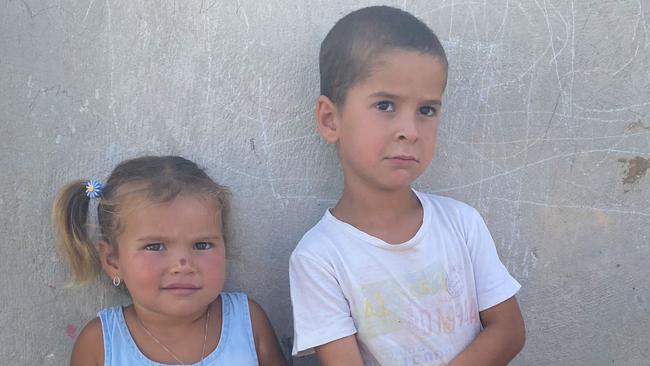
Islamic fate: the lost heirs of Aussie terror
Pressure is mounting on the PM to repatriate Australian women and children held in camps for Islamic State families in Syria, amid fears their indefinite detention is leading to a national security disaster.
The children range in age from three to 16 years. Some of the women have had their Australian citizenship stripped in a decision likely to be tested in the High Court, off the back of a similar case involving a man last month.
The Kurdish autonomous administration, security officials, US government and aid groups are pleading for the foreign nationals to be repatriated, saying their ongoing detention is a human rights disaster and a security ticking time bomb.
While the Coalition government refused to bring the families home, claiming it was too dangerous for officials to go to Syria, it’s understood consideration is being given by Labor to potentially repatriating the Australians in small family groups.
While the decision is ultimately a political one, state and federal law enforcement and national security and intelligence agencies are giving thought to how to manage and fund the enormous surveillance effort required to monitor the group, sometimes for years, after they were returned.

It’s believed that of the women waiting to be brought home, fewer than 10 would likely be charged with terrorism offences.
Those who do face the courts would likely be charged with entering a proscribed area, namely the Syrian city of Raqqa, which became Islamic State’s de facto capital in 2014.
And while the crime, which existed only from late 2014-2017, carries a maximum penalty of 10 years’ jail, most of the women seem unlikely to be in line for a maximum penalty and would be released into the community on terrorism control orders, which they have each voluntarily agreed to submit to.
The vast majority of the women and children are also sick, deeply traumatised and will require support from state education, housing, welfare and health agencies to rebuild their lives in Australia. Some may still hold extremist views, or come under pressure from relatives who do.
Rodger Shanahan, nonresident fellow at the Lowy Institute, said he believed the women would likely be brought back together as a “job lot’’ and be remanded in prison pending prosecution. He said children would be cared for in the first instance by family or, more likely, go into state care for a period of time. “In due course the women would face court and if they’re found guilty, given whatever sentence and then at the end of that sentence likely go on a control order for one, perhaps two years,’’ he said.
Children would undergo a period of deradicalisation and rehabilitation into society, while some children born in Syria would have to be introduced into Australia society.
Dr Shanahan said it was too early to tell how successful overseas repatriations had been because many of the women were still in jail, and deradicalisation would take years. He said control orders were an effective way of monitoring compliance. “At some point you have to bring them back. When is the right time? The right time would be when you’ve got arrest warrants or sufficient evidence against everybody who is detained overseas, all the adults who are detained overseas.
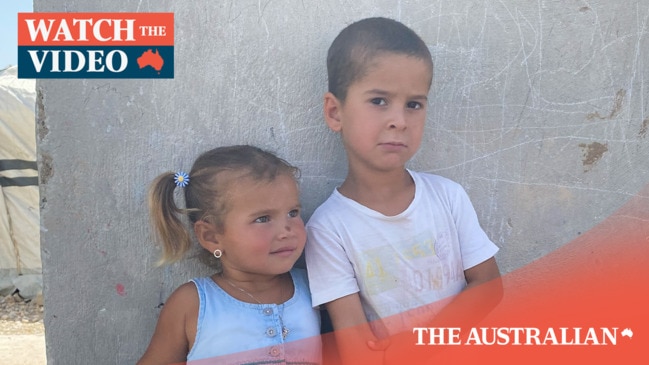
“They are Australia’s problem at the end of the day and the children, in my opinion, are a much more urgent problem than the adults because you need to get the deradicalisation program started early to give them the best possible opportunity to grow up in some kind of normalised environment.’’
The new Home Affairs Minister, Clare O’Neil, said: “The former government sat on this problem for the best part of a decade. Our approach will be driven by one single factor: the national security of Australia.”
Dr Omar said his office stood ready to help Australia take its citizens home. He revealed that in the absence of formal discussions with Australia, he had established a back-channel with our embassy in Lebanon for preliminary discussions.
“This problem is an international problem for the international community so we want each country to repatriate their citizens,’’ he said. “We are ready to co-operate with them and we together can solve this problem.
“We have this conversation and meeting between us and the ambassador of Australia in Lebanon about the situation in the area and we talk about the situation with the Australian people.’’
In an interview in his office in Qamishli, near the Turkish border, Dr Omar dismissed claims by former prime minister Scott Morrison and home affairs minister Peter Dutton that it was too dangerous to travel to the region to bring its citizens home. “You are here; did you see anything dangerous for you here?’’ he asked.
“It will be easy to repatriate. The practical things would be so easy, the procedures. We are ready to co-operate with your government as we co-operate with other governments in this situation. We will be so flexible and … helpful.’’
Australia’s most important ally, the US, has repatriated all of its citizens and is strongly urging Australia to do the same, offering its substantial military assets to assist.
The Home Affairs Department said “repatriation assistance offered by the US or any other actor would not negate the need for Australian officials to be present’’.
“The government is of course concerned about Australian women and children in the internally displaced persons’ camps in northeast Syria,’’ a spokesperson said. “Repatriations require a whole-of-government approach and the balancing of risks … As this matter also raises national security considerations and other sensitive matters, it would not be appropriate to comment further.’’
The comments are markedly different in tone to the Coalition’s continued assertion that it was too dangerous. Two groups of Australian orphans were repatriated in 2019, and ASIO and DFAT officials quietly travelled in and out of northeast Syria at the same time as Mr Morrison and Mr Dutton were insisting “not one’’ life would be put at risk to assist the women and children.
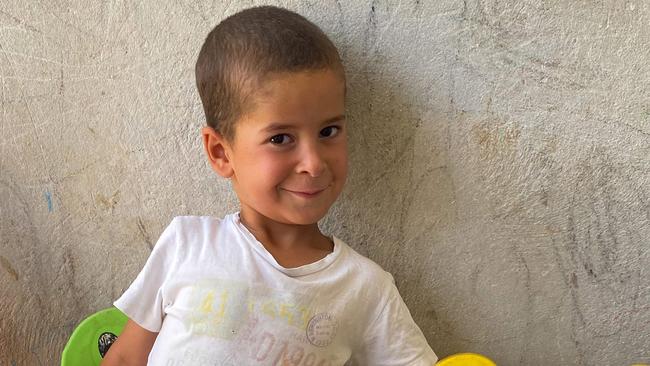
While Labor is holding firm on Australia’s existing border control and national security settings, some in the government are deeply uncomfortable with the plight of the children and some of the women in Syria.
The youngest Australian child is little Yahya, 3, the son of Kirsty Rosse-Emille, who is also in al-Roj. His father is Nabil Nadmiry, a much older Moroccan-Australian Islamic State supporter who has had his Australian citizenship revoked. He is in jail near Hasakah.
Layla, 3, is the daughter of Zeinab Ahmed, also in al-Roj, while another little boy, Hamza, 3, lives with his mother, Rayyan Hamdoush, in the notorious al-Hol camp. The three-year-olds were all born in al-Hol after the fall of Baghouz.
Abdul Raham was also born in al-Hol, but taken back into Islamic State territory when Ms Zahab was prisoner-swapped a month after he was born. She returned to the camps following the fall of Baghouz and Abdul Rahman turned one in the camps, and has remained there.
UN Special Rapporteur on Counter Terrorism and Human Rights, Fionnuala Ni Aolain, said it was time for Australia to make a decision about repatriation.
“Australia is one of the countries with the most significant capacity to repatriate its nationals. It has an extraordinary wealth of resources both in terms of its judicial systems, its social welfare and child welfare systems,’’ she said from Geneva.
“And, uniquely, it has the support of the families whose nationals are currently located in northeast Syria, to help the government and the state officials engage in a successful repatriation/reintegration program. Australia is behind the curve and I think that’s deeply regrettable for a country that is a leader on global counter-terrorism issues as well as a leader on humane and human rights-compliant foreign policies. This failure to repatriate really places Australia at the outskirts of international practice by democracies and that’s not where Australia should be.’’
Professor Ni Aolain likened the indefinite detention of the women and children to both the US offshore prison, Guantanamo Bay, in Cuba, and the detention of up to one million Uighur minority peoples in Xinjiang, China.
She said the conditions in al-Hol and al-Roj camps met the legal threshold for torture, and the camps were places of arbitrary mass detention.
“One of the really unfortunate anomalies of this case is we have created a category which has no legal basis in international law – association. Meaning these women and their children … by virtue of their presumed or actual affiliation with a man or a family member who is deemed to be a member of a terrorist group, are put into this category that, by virtue of this association, strips them of all of their legal rights,’’ she said.
“And we don’t really have a precedent … Classic international law, which Australia defends in every venue it can, defines rights of refugees, defines in situations of conflict the distinction between civilians and combatants with particular rules and obligations applying to those categories.’’
Save the Children Australia has been lobbying for years for Australia to repatriate the families.
CEO Mat Tinkler said it was “painfully clear’’ the children were suffering damage to their wellbeing and development.
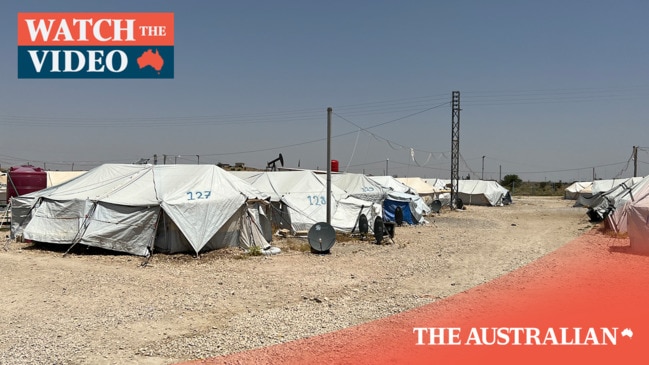
“We are talking about innocent children, who are Australian citizens, who have endured years of suffering in horrendous conditions in these camps, despite the best efforts of the camp administration,’’ he said.
“Though Labor inherited a legacy of inaction on this issue, there are no practical or legal barriers preventing the repatriations.
“We’ve seen dozens of children and their mothers safely returned to other countries like France, Germany and Sweden. Australia has a moral and legal obligation to follow suit. We appreciate this is a complex scenario for a new government, but these innocent children don’t have time to wait. We need the government to step up and take action without delay.”
Save the Children contributed to The Australian’s travel costs for this report.

Add your comment to this story
To join the conversation, please log in. Don't have an account? Register
Join the conversation, you are commenting as Logout